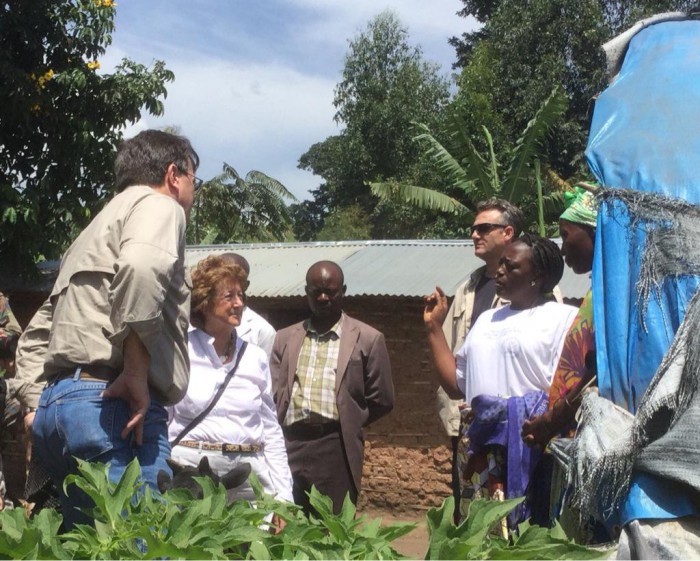25th November 2015
Hope and determination in eliminating violence against women


Today is the International Day for the Elimination of Violence against Women. Between now and 10 December, Human Rights Day, the British Foreign and Commonwealth Office – led by the Prime Minister’s Special Representative on Preventing Sexual Violence in Conflict, Baroness Anelay – will be focusing on our work to prevent sexual violence against women. It’s right that violence against women and girls remains a top international priority for the UK. Shockingly, and sadly, 35% of women and girls will experience some form of physical or sexual violence during their lifetime. Every day, thousands of women, children, and men are subjected to rape and sexual violence in conflicts around the world.
To make progress, we have to have partners. And there are few partners better placed than the Holy See. Pope Francis supported the London Summit in June 2014 that agreed the International Protocol designed to tackle impunity for the crime. In his annual speech to the Diplomatic Corps accredited to the Holy See in January 2015, the Pope decided to speak clearly on the issue: “The crime of rape is a most grave offence against the dignity of women.[..]. Sadly, even apart from situations of war, all too many women even today are victims of violence”. The Pope’s message has helped to galvanise thinking across the Holy See network, and we have been working in particular with the networks of religious men and women around the world to see what more they might do, on the ground where their congregations are based, to contribute to this global effort.
Baroness Anelay spoke to Vatican Radio on 24 November, when she took the opportunity to thank Pope Francis for his support. She highlighted her recent visit to the Democratic Republic of Congo where she had seen first-hand the scale of the problem. She spoke to government officials, civil society groups and faith leaders about their response, and witnessed the efforts of many, including the local Catholic Church, to support victims and help in the work of their rehabilitation into society.
The picture remains grim. But as Pope Francis said on the eve of his current visit to Africa, the Gospel “teaches the dignity of every man and woman, and commands us to open our hearts to others, especially the poor and those in need”. Baroness Anelay told Vatican Radio that we have to look forward with hope and determination: “The strength of the human spirit of men and women working together helps to overcome sexual violence”. We look forward to working more closely with Holy See religious networks in the future to tackle this terrible and all too prevalent crime.